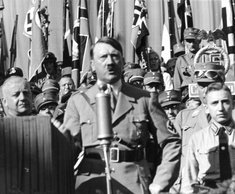Featured Quizzes
User Quizzes
Create Quiz
Data and Charts
Badges and Games
About JetPunk
JetPunk Shop
Dark Mode

Edexcel History 7. Prosperity and Social Change
In this quiz the answers change every time you play!
Answer must correspond to highlighted box!
Rate:
Last updated: December 23, 2019
You have not attempted this quiz yet.
More quiz info >>
| First submitted | December 21, 2019 |
| Times taken | 25 |
| Average score | 90.0% | Report this quiz | Report |
6:00
Enter answer here
0
/ 20 guessed
Time Used
00:00
Best Time
00:00
The quiz is paused. You have remaining.
Scoring
You scored / = %
This beats or equals
% of test takers
also scored 100%
The average score is
Your high score is
Your fastest time is
Keep scrolling down for answers and more stats ...
|
|
No comments yet
New and Popular
Save Your Progress
Edexcel/Pearson A-Level History
Quiz series by robalot39
...
Copyright H Brothers Inc, 2008–2024
Contact Us | Go To Top | View Mobile Site
